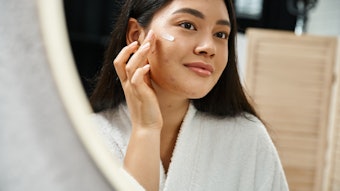
Inflammation is a complex biological response that serves as a protective mechanism against harmful stimuli in the body. When it comes to the skin, inflammation plays a significant role in various skin conditions that affect millions of people worldwide.
As skin care specialists, it is essential for us to have a comprehensive understanding of the causes, effects and treatment options for inflammation. In this article, we will delve into the concept of skin inflammation, specifically from a skin care specialist's point of view, and explore ways to address it both externally and internally through proper nutrition and supplementation.
Understanding Inflammation
Skin inflammation is a natural response of the body's immune system to injury, infection or irritants. It often presents itself as redness, swelling, pain and heat in the affected area. As estheticians, we commonly encounter clients with inflammatory skin conditions such as acne, rosacea, eczema and dermatitis.
It is important to note that different clients may experience different types of inflammatory responses. For instance, clients with darker skin tones (Fitzpatrick Type 4 and higher) are more prone to post-inflammatory hyperpigmentation (PIH). This is due to melanocytes being produced to protect against inflammation. On the other hand, clients with lighter skin tones (Fitzpatrick Type 1 to 3) are more likely to experience post-inflammatory erythema.
Properly identifying the type of inflammatory response a client is likely to experience will help us develop a personalized home care routine to manage the response effectively. This inflammation can be triggered by various factors, both external and internal.
Some common external factors include:
- Exposure to environmental pollutants
- The use of harsh skin care products
- UV radiation, and
- Exposure to allergens and irritants.
There are also internal factors to take into account when it comes to inflammation. Some common internal factors include:
- Genetic predisposition
- Hormonal imbalances
- Stress, and
- Poor diet and nutrition.
Related: How to Rescue Skin From Inflammation in the Treatment Room
Treating Skin Inflammation Externally
To address skin inflammation externally, it is crucial to establish a suitable skin care routine for the client. This includes cleansing with mild, non-irritating cleansers that are appropriate for their specific skin type. It is important to avoid physical exfoliants on already inflamed or damaged skin, as they can further aggravate the condition. Instead, incorporate soothing and anti-inflammatory ingredients like bisabolol, allantoin and aloe into the skin care routine.
In addition to a proper skin care routine, it is essential to protect the skin from further damage. This can be achieved by using broad-spectrum sunscreens to shield the skin from harmful UV rays, avoiding excessive sun exposure and wearing protective clothing. For clients prone to post-inflammatory hyperpigmentation, incorporating tyrosinase inhibitors into their routine can help protect against the condition.
Treating Inflammation from Within
Addressing skin inflammation internally is equally important for achieving optimal results. Encouraging clients to consume anti-inflammatory foods can have a positive impact on their skin health. Omega-3 fatty acids found in fatty fish, walnuts and flaxseeds are known for their anti-inflammatory properties.
Brightly colored fruits and vegetables rich in antioxidants can also help reduce inflammation. Additionally, incorporating turmeric, ginger and garlic, which have natural anti-inflammatory properties, into the diet can be beneficial.
Supplements can also play a role in addressing skin inflammation. Omega-3 fish oil supplements can help reduce inflammation, while probiotics support gut health, which in turn, can have a positive impact on the skin. Vitamin C and E, known for their antioxidant properties, can also be beneficial in alleviating inflammation.
Alleviating Inflammation
As skin care specialists, understanding the role of inflammation in skin conditions is crucial for providing effective treatments and advice to clients. By addressing skin inflammation, both externally through a customized skin care routine, and internally through a balanced diet and nutritional supplements, it is possible to alleviate inflammation to promote healthier, calmer skin.
Alex Hernandez is a licensed esthetician and the clinic manager and lead educator at the Face Reality Acne Clinic in San Leandro, CA. She became a Face Reality Certified Acne Expert in 2018 and has worked with hundreds of acne clients in her esthetics career.











